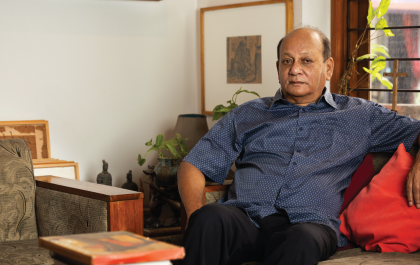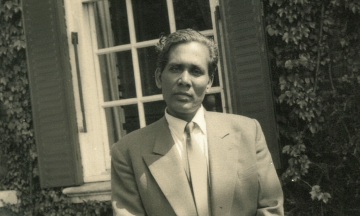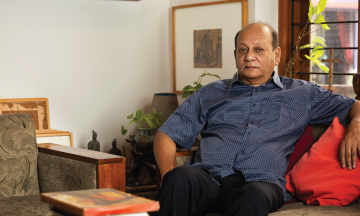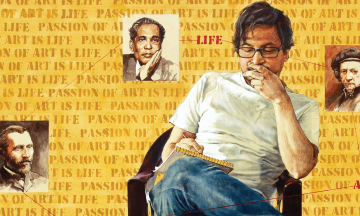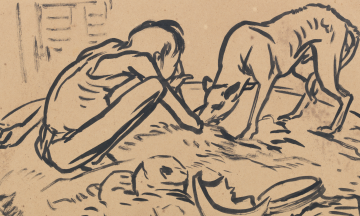By Zareen Nawar
From ramp to TVCs to acting roles on television and film, Arifin Shuvoo has had quite the storied career over the last sixteen years. The National Award winner looks back on his journey and the choices that led him here
Arifin Shuvoo is no stranger to making headlines. His incredible physical transformation for his new action role has been whipping fans into a frenzy for almost a year now. He caused quite a stir when he refused payment for the privilege of playing the titular role in Mujib: The Making of a Nation. But it was when he brought his mother to the cinemas to watch his film Mission Extreme 2: Black War, now in theatres across Bangladesh, that he truly melted some hearts. Arifin Shuvoo took his ailing mother to the cinema for the first time in his lengthy acting career and says that the satisfaction of seeing the joy in his mother’s eyes was indescribable.
The two-time Meril Prothom Alo Awards recipient has delivered a good blend of genres since he made his film debut in 2010. In his own words, he has continued to push the boundaries of his abilities and artistry with each role. His determination to effectively transform his body for the entire Mission Extreme story has been hailed as the first-of-its-kind body transformation story brought to life by a Bangladeshi actor. When he announced he would accept no more than one taka as remuneration after bagging the role of the Father of the Nation in Mujib: The Making of a Nation, he was lauded by netizens.
Between promoting Black War and his upcoming web film, Unish 20, Arifin Shuvoo recently sat down with MWB over the phone to talk about it all.
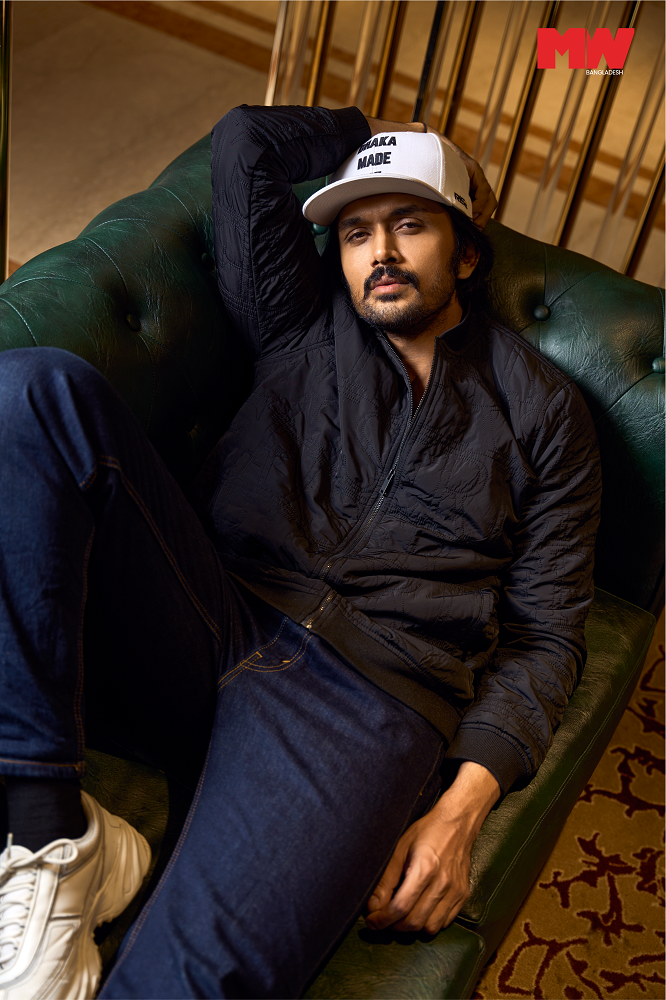
I feel like it would be best to first ask, what was your dream growing up?
The people who come in from Bangladeshi mofussils might dream big but they have their feet planted on the ground and know how to not get delusional. They work hard and rein their dreams in to match the practical realities of their lives. As a boy who grew up in a typical middle-income family in Mymensingh, I was no different, but I found my happiness in making people around me smile. For instance, I would take up the opportunity to entertain and help the bride’s side of the family during a wedding occasion even when I belonged to the groom’s family and my family would teasingly question why I was helping the opponents during the competitive games during such ceremonies. I was the mischievous type and I kept that up to keep my surroundings lively.
Now, I said the aforementioned things because I believe that my addiction to entertaining people with whatever I had or have at my disposal, lies at the core of everything I do. This was the reason behind my venture into the fashion industry, when I started doing radio shows, followed by working as an assistant director at a production house. I even worked at an event management company until eventually I began working on TV shows and have since moved to cinema as well. My transitions were small and gradual.
Did you study film before setting out to become an actor?
Not really. I never studied towards any institutional degree related to the performing arts or my crafts. I however chose to participate in a 22-day long workshop related to acting a few years ago that simply fell into place well after I actually began acting and honing my skills as an actor.
Did you perhaps have a backup plan or a different career track to fall back on?
I think there are certain people who progress or proceed through life without a plan B and I am just like them. I never really have a plan B.
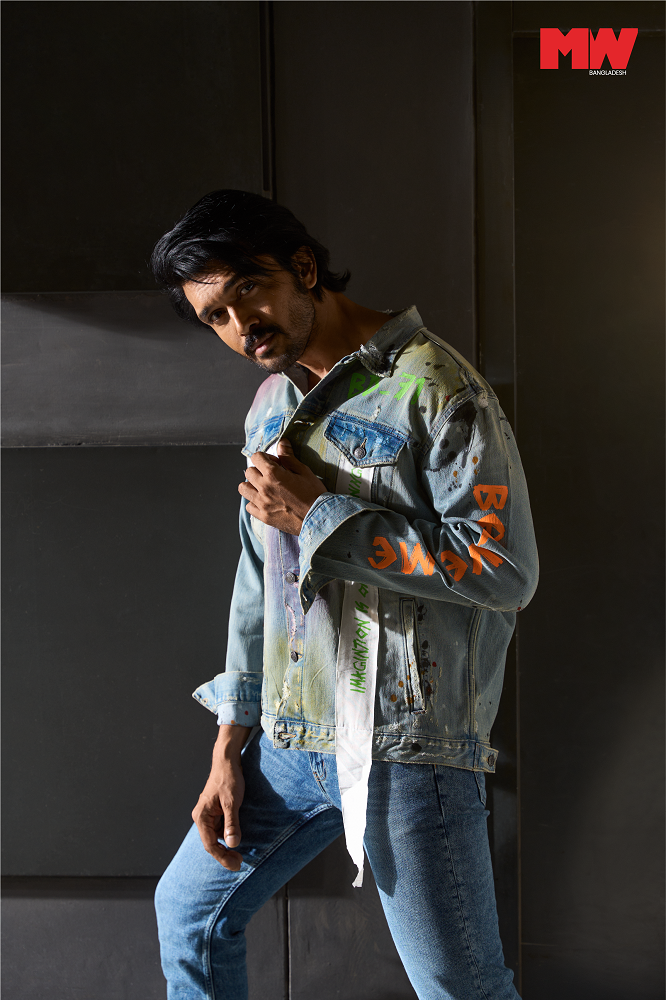
Could you detail your path of transitioning from modeling to acting?
At one point, while I was still working in the fashion industry, I began to find it restricting and wondered if that was all there was to that industry. I found a drive to want to do more even if it meant branching out. As I was also accumulating connections in the industry, I managed to find my way into TVCs here and there because being on screen can open up new doors. I met Ovick bhai of Ovick Motion Graphics while I was a junior artist/an extra during a TVC. He approved of my nature so much that he strongly advised me to learn the ways of working behind a camera and that was what made me step into acting more.
One of my personality traits is to seek, not settle, and that is why it made sense for me to keep on transitioning. I did not have to do much soul searching before I decided to get into acting.
“It is never just about money or any material reward. The ultimate reward remains the gratification found through love and appreciation from the audience”
At this point in time do you feel like you have a personal preference regarding which medium to work for, what with the increasing demand for shows on OTT platforms?
Apu! It might seem like a simple question from the perspective of the press but it honestly should not be. As a writer yourself, I’m sure you focus on the content of your writing far more than the point of publication. Similarly, I believe that a performer will be happy as long as they get to perform. It is never just about money or any material reward. The ultimate reward remains the gratification found through love and appreciation from the audience.
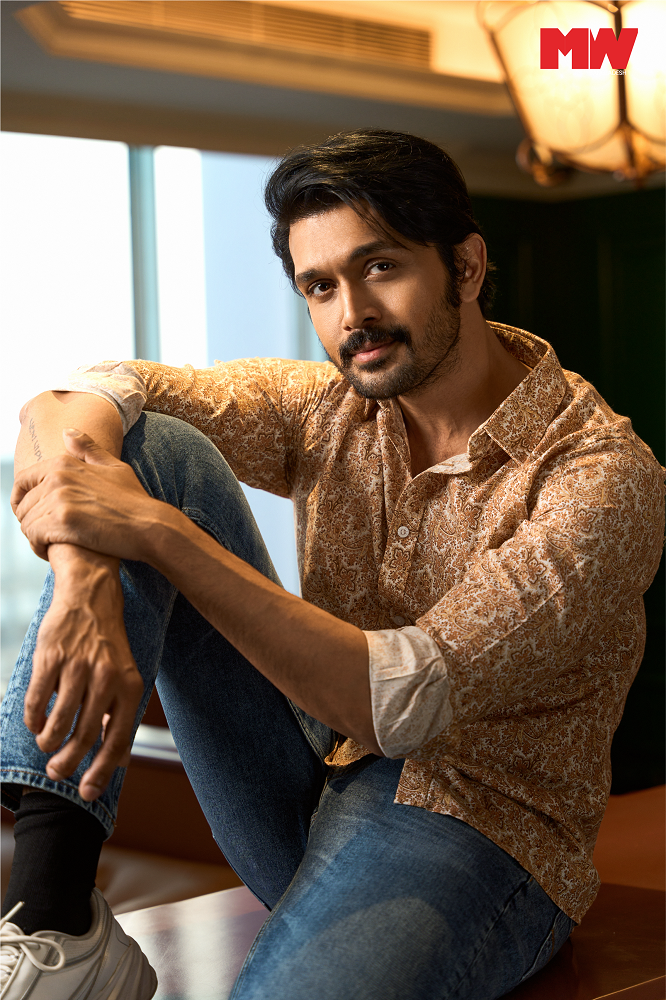
Speaking of rewards, do you think that the National Film Award and the Meril Prothom Alo Awards, amongst your other accolades, changed you or your perspectives in any specific way?
The awards definitely have been inspiring on a personal level and at the same time, I learned to be more discerning. You know how they say that people evolve as they begin to learn and realize more? I can honestly say that there used to be a period when I would get really excited after receiving awards but now, I recognize that it is something that might not come to me tomorrow. The most significant thing for me to do is to keep on moving forward, without putting thoughts into keeping track of the possibility of receiving awards. Awards are of course great, and when I receive them, I feel grateful. Nevertheless, if I were to lose out on an award it will not be able to hinder my growth.
“Based on my personal experiences, I have strictly learned to never take my successes, awards, and even failures for granted. Life will have to go on and I will have to continue to forge ahead”
You are one of those that can not only blend in with the crowd of today but are also rather deft with the latest promotional navigations. Do you feel like you had to adapt a lot?
I belong to the generation that came right before the millennials so I don’t really feel that big of a gap there. There isn’t even a difference of one generation between the gap. I think we are all vibing and appreciating the same kinds of music, for instance. Maroon 5 and Ed Sheeran are some of the artists that we are all listening to now and the ongoing generation are also dedicated listeners of Bryan Adams, Richard Marx, and the classics of the 90s and 80s. People still listen to ABBA. I am from the generation when Bryan Adams, Celine Dion, Backstreet Boys and the like were making it in the charts. So, I don’t feel like I have had to adapt much at all, in fact I feel far more connected to the generation.
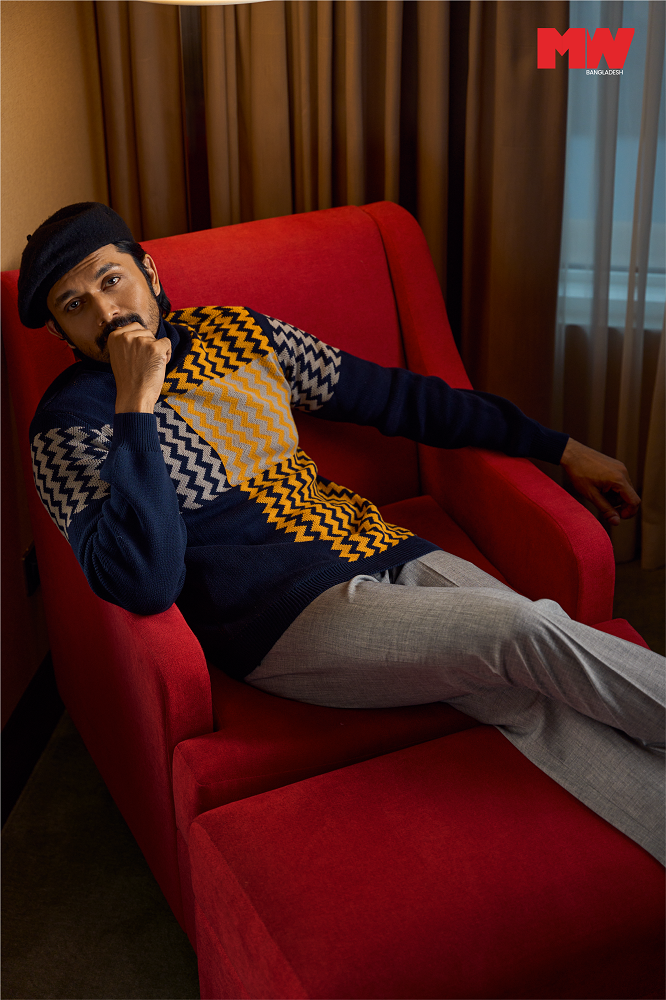
For some unspoken reason, while growing up I never really bonded with my contemporaries. There would just be notable differences between our contemplations and ruminations. Most of them used to think rather conventionally and I myself am not that fond of thinking traditionally. On the other hand, the thinkers or more importantly the hustlers today are able to work and act more progressively and boldly, which I admire and I truly love being around them and connecting with them. Technically speaking, this generation is also a part of my audience and if they are willing to shower me with their love and support, then it just goes to show that they are able to connect to me too.
As per the promotions of your new movie, Mission Extreme 2: Black War was directed by the actual head of the counter-terrorism unit who also wrote Dhaka Attack, so how different was the process of being directed by someone with that expertise?
The noteworthy differences that I experienced were in the areas of authenticity and practical reality. As a matter of fact, I played the part of a cop in Kistimaat, but now in hindsight, my role no longer feels as authentic. I cannot speak for others, but according to me, Dhaka Attack was more authentic in terms of the character, the approach towards the motivation, the body language of the character, and the character graph. It showcased the near semblance of a police officer’s journey in life. Civilian writers and the production team of Kistimaat on the other hand are not even supposed to be too privy to the internal investigative affairs of police and law and order forces, and this shapes their approach to creating the roles.
What compelled you to take up the challenge of attaining your self-proclaimed “made in Bangladesh six packs” body transformation and that too the first of its kind in Bangladesh?
If everyone ended up repeating the same things over and over again in prehistoric times, then perhaps today we would still be living in caves. At some point, somebody ventured out and wanted to build a civilized society and the rest is history. Right?
I decided to halt work for several months to pursue the challenge [of working on my physique] keeping in mind that our industry is one the smallest ones around the globe be it regarding the number of movie theaters or halls, budgets, technical resources, technicians, writers, editors, crews, production planners, designers, you name it. In fact, there isn’t a sector where we are not lacking. I was not even sure if I would get the outcome I wanted because no one in Bangladesh ever attempted a challenge of this kind before.
I do not know if you know this, but Hrithik Roshan was rather on the leaner side when he was offered the movie Kaho Naa Pyaar Hai. In order to bulk up, he contacted Salman Khan for guidance and “Bhai” literally trained him at Salman Khan’s gym. In contrast, I did not have even one peer that I could call to ask for help or experienced assistance.
A bodily transformation of that range not only requires resources but designated experts too, like a doctor, a nutritionist, a trainer, a therapist, and a chef. Other film industries have teams of such experts while we do not even have one. I myself became aware of the more intricate details once I began studying for my new gym routine. There is usually a whole team responsible for providing all sorts of necessary resources to the actors undergoing weight transformations like Christian Bale and all the Hollywood actors that can be seen on the screens of our halls too. Could a comparable situation be arranged for me here, would anyone really bother? Instead, some people questioned my decision to halt filming because I could not provide them with filming schedules. I had to hear the worst of their taunts.
The result was also unbelievable for those very same people and they assumed what naysayers assume. The initial release of several still pictures were presumed to be photoshopped. It has however turned into a bit of a joke for me now so if I am suddenly asked about my transformation, I sometimes do say that those pictures were just photoshopped. All in all, my drive to be at least one person being able to do things differently in our industry must have acted as a force of motivation. Hopefully, five years down the line, a finer actor with a way better body structure is likely to be in our industry and if that actor calls me his inspiration, then the challenge will have been worth my while and that significance will have added value to my intention behind taking up the challenge.
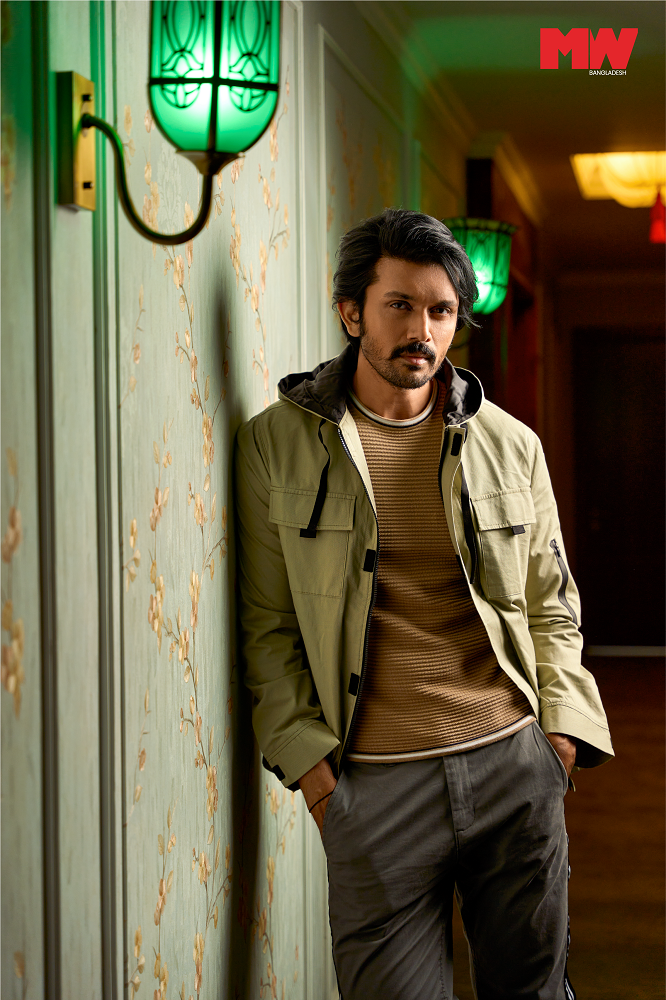
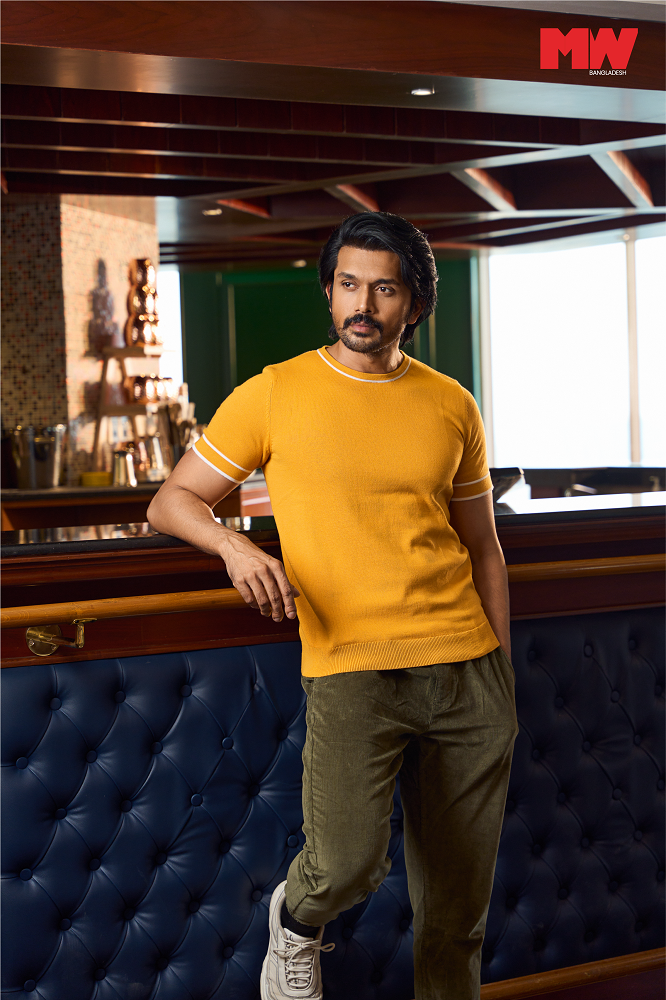
What is your process of delving into the characters you play?
It depends on the kind of character I am given to play. As I mentioned in the beginning, I never studied acting at any institution so I do not necessarily think I want to try this or that type of acting or such. My process is to essentially focus on finding or reaching the soul of the fictional character given to me. I persistently seek the nuances that make a character humane. I ask where the character comes from, what kind of school student was he, what kind of food does he like and so on. These questions allow me to build him into the man ultimately seen on screen. That is all there is to my prep within fixated timeframes, so there never really is time to attempt extra measures if I wanted to.
Some 15 to 20 years ago, industry-based news never traveled as fast as does now, as a result, they had the power and privilege of taking as much time as they wanted to produce one film and hence, they were able to present actors in fresh versatile ranges without having to worry about wrapping up production to rush onto the next project. Nowadays on top of fresh content actors are also expected to look vastly different within brief periods of time. These expectations of the audience which include hoping for something new from Shuvoo can also feel like pressure. Then again to present myself differently I worked on three projects over the last four years, namely Mission Extreme, Mission Extreme 2: Black War, Noor and Mujib: The Making of a Nation and I refused payment for the last film. I don’t even have other sources of income so you can only imagine how I am having to move onward whilst still maintaining my diet.
So yeah, I try to maintain my process of acting and necessary changes to my look when I am portraying a character so that I can keep my audience from becoming bored with me. So far, in my ever-learning acting career, I have also only ever played fictional characters except for the biopic Mujib, where I got to play The Father of the Nation Bangabandhu Sheikh Mujibur Rahman.
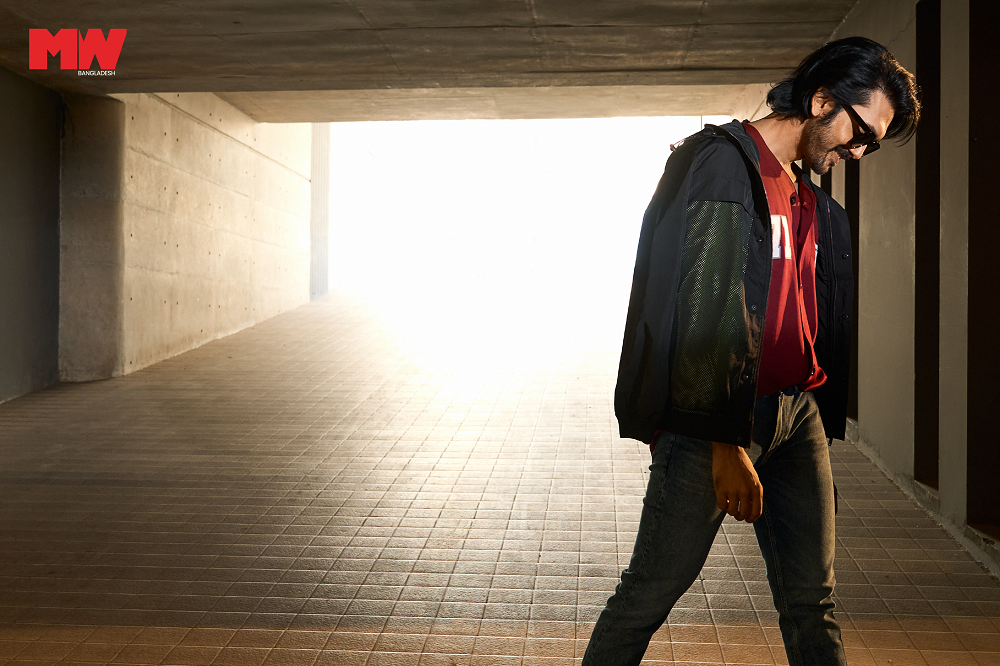
Now I must ask you to please say as much as you can about your experience throughout Mujib: The Making of a Nation and how did you feel when you were offered the role?
Firstly, I was not offered the role of Sheikh Mujib at all. I underwent five auditions and one meeting and over three months’ worth of grinding. Three out of the five auditions took place in Bangladesh while the other two alongside the one meeting took place in India. Even after all of that, I was not immediately informed that I had bagged the role. A good while later I was one day called and informed of the filming dates plus all the necessary details and I was eventually told “you will be playing Mr. Sheikh Mujibur Rahman.”
Not only was I going to be acting in a biopic but I was also going to be playing such a phenomenal personality that I simultaneously felt euphoria and dread. With the trajectory and the experiences of my small acting career in mind, I knew it was going to be a big challenge, especially considering how harshly I might get criticized and judged. More often than not, actors are taken for granted and we might as well be aliens without emotions for those treating us like public property.
I was definitely aware of the acute pressure of having to play this particular character, and honestly, the rest can only be understood and said after the film gets released and I don’t have much else to add.
What was it like being directed by Shyam Benegal?
Being a director is one thing and being a legend is another and Shyam Benegal is a legend, more prominently in the Indian film industry. Therefore, working with him was an experience I can’t accurately describe. Playing the role of The Father of the Nation whilst being directed by Shyam Benegal was clearly never on my bucket list because what were the odds of these two factors colliding for me? I can safely say that working on Mujib for two years made me feel as if I went through an education at a university.
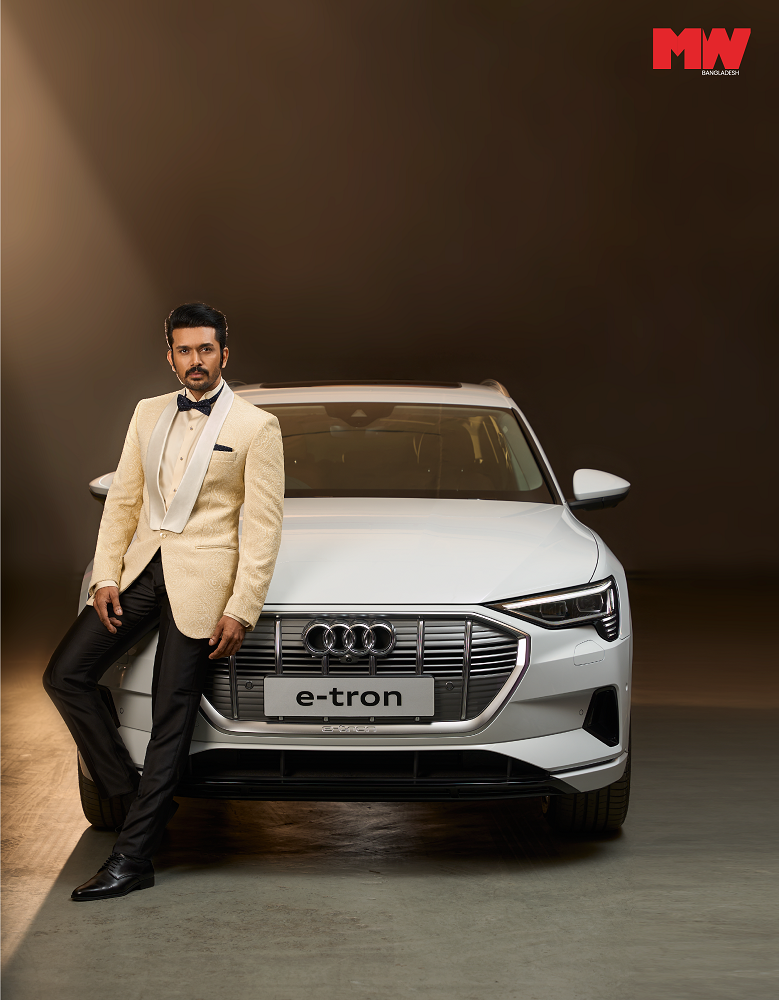
What are your thoughts on future shifts that can make the film industry worthwhile?
Whenever I see or hear audiences say that they either have never seen a Bangla cinema at a hall or they have not been to the hall to watch a Bangla cinema in years but they went to watch one of my works, I personally feel validated because it makes me think that the changes I brought in me are probably working. There is a saying that says if one tries to change the word then they will probably never end up doing it so the most one can do is change oneself.
“The return of middle-income moviegoers to the cinemas to watch cinemas in Bengali would be it for me”
Is there any specific director that you have been very keen on working with?
I cannot name any specific director as such, but I will say that the new-age directors or the young blood with very fresh ideas and concepts are creators that intrigue me. A web film, Unish 20 that I recently did with director Mizanur Rahman Aryan will be released on February 13 and my character in that is drastically different from my character in Black War. I have noticed that new-age directors put effort into bringing new elements out of an artist’s abilities and I would love to work with more of them as they rarely present old or repetitive stories.
Do you have advice for those that want to begin their careers in the industry?
There is a common perspective that dictates that only good-looking people can enter and thrive in the industry so first of all, they need to completely ignore that perception of only focusing on external looks because that is merely only a bonus. Hard work, dedication, consistency, patience, disciple, a professional approach, and most importantly, the art of knowing how to face failures or rejection is far more important than external matters. Without the aforementioned qualities, it will be impossible for anyone to survive.
The same can be said for people going for any industry really.
Fashion Direction & Styling: Mahmudul Hasan Mukul
Photographer: Farabi Tamal
Make-up & Hair: Shumon Saha
Wardrobe: RISE
Assistant Stylist: Arbin Topu
Location: Holiday Inn
- tarin fatema
- tarin fatema
- tarin fatema
- tarin fatema
- tarin fatema
- tarin fatema
- tarin fatema
- tarin fatema
- tarin fatema
- tarin fatema
- tarin fatema
- tarin fatema






